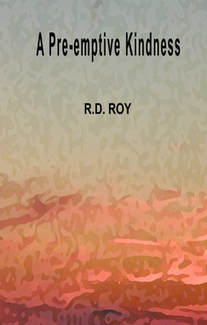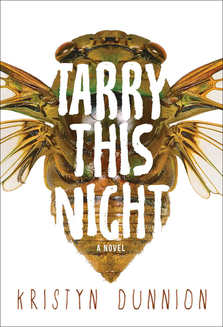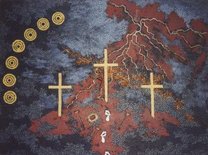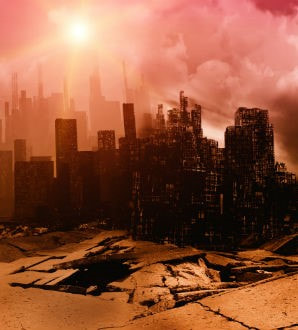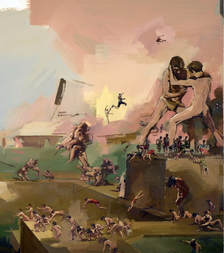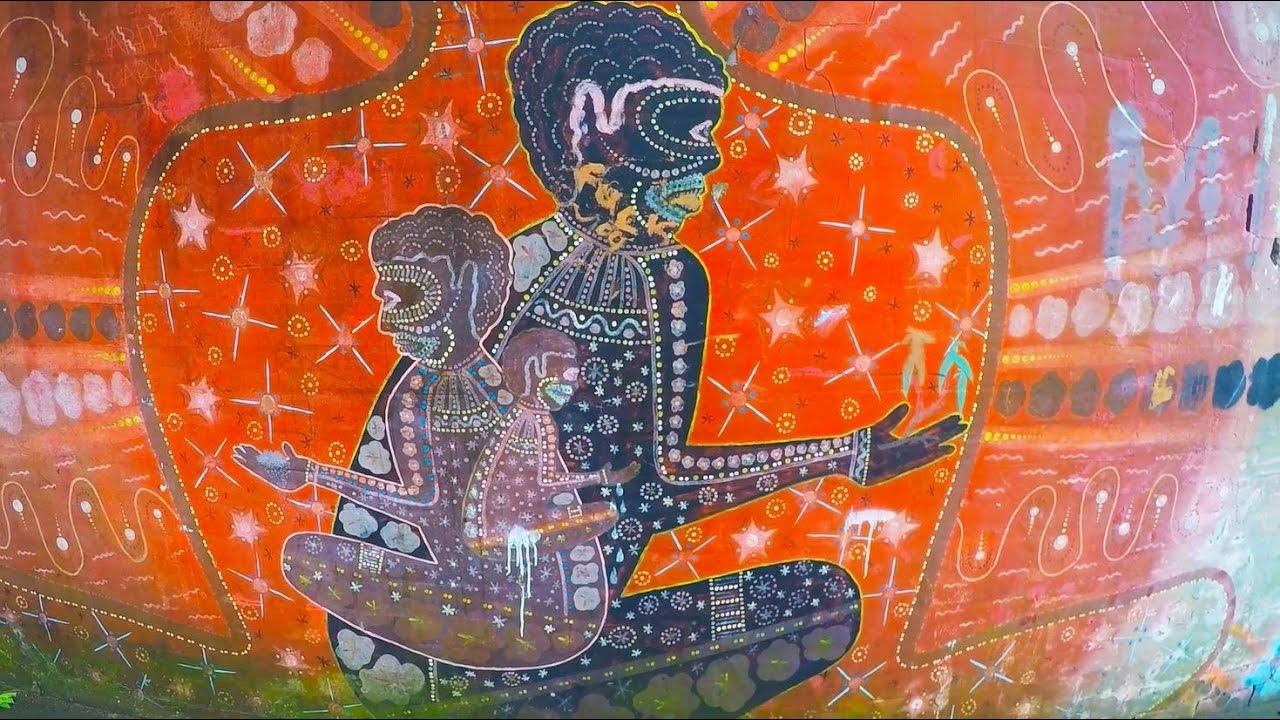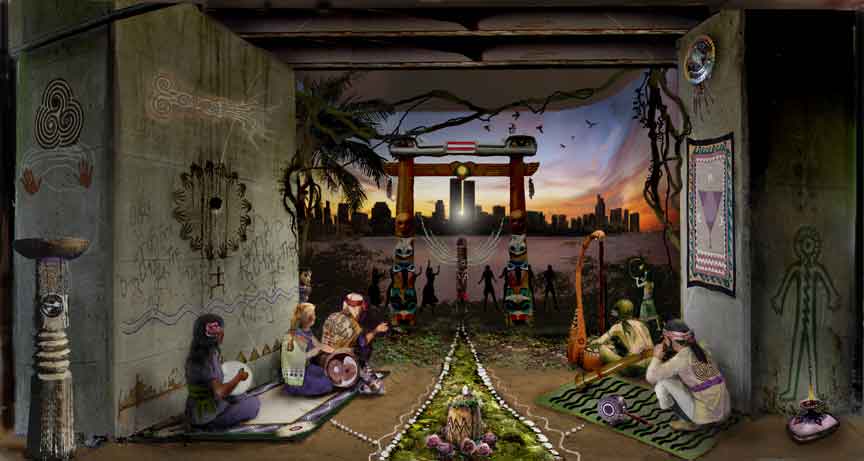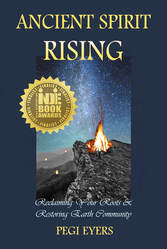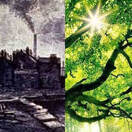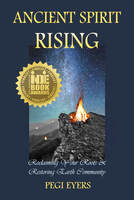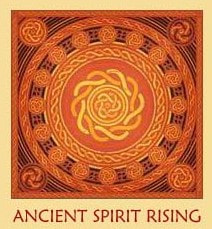REVIEWS BY PEGI EYERS
A Pre-Emptive Kindness by R.D. Roy (Hidden Brook Press)
Tarry This Night by Kristyn Dunnion (Arsenal Pulp Press)
It's not that difficult to imagine dire scenarios in the future, when the symptoms of collapse seem to surround us each day in societal breakdown, wonky weather patterns, ongoing ecocide, political turmoil, economic riptides and deliberate stupidity. And yet the capitalist machine rolls on, as big oil continues to provide us with every luxury, amenity and consumer good we could possible imagine. Settler Futurity, or the expectation that our way of life will continue unabated for decades (if not centuries more) seems to be at the height of our cognitive dissonance and denial.
That's why looking to fiction can provide us with a much-needed reality check on how the many layers of our personal and collective worldview may play out, in what promises to be an apocalyptic future. The resources required to feed our "endless growth" civilization are not infinite, and among other inevitabilities, when peak oil arrives it will all come crashing down. Are beings from outer space going to save us? Will we all collectively begin to reject capitalism and stop driving cars? Will Mother Earth and her climate disasters such as floods, hurricanes and fires, provide greater smack-downs than those we've already experienced? Will the plague of all plagues arrive to deplete our numbers? Or will the elite New Agers among us achieve "spiritual enlightenment" and somehow "shift" our reality to a golden era of peace and prosperity?
There are no boundaries to the human imagination, and we can just as easily create massive problems for ourselves and Earth Community, as we can access our substantial powers of healing and remediation. And like R.D. Roy and Kristyn Dunnion, some of us are particularly skilled at creating new worlds through speculative fiction. For Roy, tracing the arc after a collapse scenario is distilled into basic human hunger and the imperative for territory and clan in urban wastelands; and the return of tribal wisdom and the re-indigenization of survivors in the forests and ecosystems that remain. Considering how humanity has screwed up the civilizational project, returning to an low-tech archaic hunter and gatherer society is incredibly appealing!
Tarry This Night by Kristyn Dunnion (Arsenal Pulp Press)
It's not that difficult to imagine dire scenarios in the future, when the symptoms of collapse seem to surround us each day in societal breakdown, wonky weather patterns, ongoing ecocide, political turmoil, economic riptides and deliberate stupidity. And yet the capitalist machine rolls on, as big oil continues to provide us with every luxury, amenity and consumer good we could possible imagine. Settler Futurity, or the expectation that our way of life will continue unabated for decades (if not centuries more) seems to be at the height of our cognitive dissonance and denial.
That's why looking to fiction can provide us with a much-needed reality check on how the many layers of our personal and collective worldview may play out, in what promises to be an apocalyptic future. The resources required to feed our "endless growth" civilization are not infinite, and among other inevitabilities, when peak oil arrives it will all come crashing down. Are beings from outer space going to save us? Will we all collectively begin to reject capitalism and stop driving cars? Will Mother Earth and her climate disasters such as floods, hurricanes and fires, provide greater smack-downs than those we've already experienced? Will the plague of all plagues arrive to deplete our numbers? Or will the elite New Agers among us achieve "spiritual enlightenment" and somehow "shift" our reality to a golden era of peace and prosperity?
There are no boundaries to the human imagination, and we can just as easily create massive problems for ourselves and Earth Community, as we can access our substantial powers of healing and remediation. And like R.D. Roy and Kristyn Dunnion, some of us are particularly skilled at creating new worlds through speculative fiction. For Roy, tracing the arc after a collapse scenario is distilled into basic human hunger and the imperative for territory and clan in urban wastelands; and the return of tribal wisdom and the re-indigenization of survivors in the forests and ecosystems that remain. Considering how humanity has screwed up the civilizational project, returning to an low-tech archaic hunter and gatherer society is incredibly appealing!
For Dunnion, not only is the ignorance of religious fundamentalism terrifying in its implications today, her projection to a future where religious fanatics have engineered social collapse is a nightmare scenario. Examining the psychosis of a cult leader and his followers from every possible angle, her riveting novel Tarry This Night includes the worst of the human condition - the "Great Father" archetype, blind obedience to authority, subjugation of the weak by the strong, patriarchal dominance, forced polygyny, pedophilia, lateral violence, brutality, victim-blaming, manipulations, greed, delusion, salvationist myths, isolationism, and (wait for it) cannibalism.
Even today we find evidence that the "heavenly scriptures" can be spun to fit the ideology of exceptionalism for any "chosen people," but Dunnion shows us just how far this fantasy can go. There does seem to be a dire sickness that results from blind faith, or adherence to monotheistic dogma and organized religion. One can't help but notice how this cautionary tale mirrors the same freedom from oppression women are seeking today, and that patriarchy has always been at the root of the problem. Beautifully written, both tragic and full of hope, Tarry This Night is a fusion of underground bunkers, bombed out landscapes, dead zones, marauding bands, survivor factions, green forest sanctuaries and the bold resistance of heroes and heroines. By all means stay with this incredible story to the end.
Even today we find evidence that the "heavenly scriptures" can be spun to fit the ideology of exceptionalism for any "chosen people," but Dunnion shows us just how far this fantasy can go. There does seem to be a dire sickness that results from blind faith, or adherence to monotheistic dogma and organized religion. One can't help but notice how this cautionary tale mirrors the same freedom from oppression women are seeking today, and that patriarchy has always been at the root of the problem. Beautifully written, both tragic and full of hope, Tarry This Night is a fusion of underground bunkers, bombed out landscapes, dead zones, marauding bands, survivor factions, green forest sanctuaries and the bold resistance of heroes and heroines. By all means stay with this incredible story to the end.
Looking to R.D. Roy's dystopia in A Pre-Emptive Kindness, we find a brilliant statement on the eternal divide at the root of humanity between the so-called "civilized" and the "pagan," or what the late Daniel Quinn referred to as the "leavers" and the "takers." Our modern fear of "being blasted back to the Stone Age" is a deceit and unfounded (if not out-and-out racist), when we consider the current consensus on how low-impact indigenous societies are the most sustainable way to be living on our particular planet. Indeed, the time-tested worldviews of IK (indigenous knowledge) may be our best way forward! As a projection of both western and tribal worldviews, two very different groups are contrasted in A Pre-Emptive Kindness, as they deal with great changes in their short evolution and move toward an inevitable encounter with one another.
In a time of mega-storms, killing sun, and unleashed biological warfare, Roy offers stunning detail on urban living in a collapsed city. Clans mark territory; the detritus, fittings, and materials of civilization are strangely re-purposed; the "man the hunter" archetype rules; the population has lapsed into illiteracy after a few short generations; many suffer from horrific skin diseases; starvation is looming as all the urban plants and animals have been depleted; and dogs, our loyal companions for millennia, are now a source of food. Operating more from base instinct than formulated thought, the more awake and aware among them realize it's time to leave the city.
Roy makes a powerful statement on indigeneity and resilience by portraying the forest dwellers as intraconnected and thriving in Earth Community. In contrast to the dysfunctional and sick urban dwellers, they find ways to work together, gather in council circles around the fire, reinstate Elder-honoring and storytelling as important to cultural life, and teach the children the Old Ways of hunting, gathering, tracking and plant medicine. Isolated for many years, wary of threat and secretive by nature, members of this tribal group have recovered their animist ability to connect with trees and other beings, and magic occurs in their relationships with the forest creatures and other elements in the wild. As the teachers ask the children, "Can you hear the forest singing?"
In a time of mega-storms, killing sun, and unleashed biological warfare, Roy offers stunning detail on urban living in a collapsed city. Clans mark territory; the detritus, fittings, and materials of civilization are strangely re-purposed; the "man the hunter" archetype rules; the population has lapsed into illiteracy after a few short generations; many suffer from horrific skin diseases; starvation is looming as all the urban plants and animals have been depleted; and dogs, our loyal companions for millennia, are now a source of food. Operating more from base instinct than formulated thought, the more awake and aware among them realize it's time to leave the city.
Roy makes a powerful statement on indigeneity and resilience by portraying the forest dwellers as intraconnected and thriving in Earth Community. In contrast to the dysfunctional and sick urban dwellers, they find ways to work together, gather in council circles around the fire, reinstate Elder-honoring and storytelling as important to cultural life, and teach the children the Old Ways of hunting, gathering, tracking and plant medicine. Isolated for many years, wary of threat and secretive by nature, members of this tribal group have recovered their animist ability to connect with trees and other beings, and magic occurs in their relationships with the forest creatures and other elements in the wild. As the teachers ask the children, "Can you hear the forest singing?"
Yet after a few generations of putting community ahead of the individual (the tribal way), a rogue element has begun to promote the values of individualism and ownership once again, to plunder from nature instead of acting in reciprocity. Unlikely mentors and leaders step up to provide a moral compass, at the same time the urban scavengers are detected on the perimeter. As the city folk crossed abandoned farmlands on their way to the forest, the opportunity to kill a majestic and magical stag is missed, and somehow the new idea of a plant-based diet begins to take hold. Roy's masterful story of a post-collapse world begs the question of how human groups can evolve so differently, over time and in diverse locations, and hints at the possibility for clashing worldviews to converge. And as the title suggests, the important pre-requisite for a new and hopeful era in human history could be A Pre-emptive Kindness.
Readers of such amazing speculative fiction must of course make the connection to our dire situation today. If the worst indeed comes to pass, how will the human heart, mind and soul respond to such massive change? Will we regret the civilization we left behind, feel nostalgia for what was, and for all that we used to collectively understand? In the present moment, can we even fathom how our beloved habits may be fading, in front of our very eyes? In a time of apocalypse, do we hold on, or do we move on?
A poignant passage from Kristyn Dunnion's Tarry This Night offers a clue. "Their whitewashed log cabin with creaking veranda and garden out back. The purple flowers that flourished each spring. That happy, safe past slams into her. Ruth pushes each picture away, just as she was taught. She clears her mind. Imagines a zero, a sphere of nothing. But the thread of memory is stitched deep in Ruth's body. It circles her bones and pulls, old truths knotted in time." For the survivors of tomorrow, we can only hope they will build a new world from our best memories - a place to heal and live in harmony with all human factions, and especially, with our beloved Earth Community.
Readers of such amazing speculative fiction must of course make the connection to our dire situation today. If the worst indeed comes to pass, how will the human heart, mind and soul respond to such massive change? Will we regret the civilization we left behind, feel nostalgia for what was, and for all that we used to collectively understand? In the present moment, can we even fathom how our beloved habits may be fading, in front of our very eyes? In a time of apocalypse, do we hold on, or do we move on?
A poignant passage from Kristyn Dunnion's Tarry This Night offers a clue. "Their whitewashed log cabin with creaking veranda and garden out back. The purple flowers that flourished each spring. That happy, safe past slams into her. Ruth pushes each picture away, just as she was taught. She clears her mind. Imagines a zero, a sphere of nothing. But the thread of memory is stitched deep in Ruth's body. It circles her bones and pulls, old truths knotted in time." For the survivors of tomorrow, we can only hope they will build a new world from our best memories - a place to heal and live in harmony with all human factions, and especially, with our beloved Earth Community.
_______________Picture Credits_______________
| "Good Friday" painting © Clifford Possum Tjapaltjarri AO and assisted by Milanka J Sullivan, 1994 "Centrist Duo" painting © Andrew Morrow >website< Indigenous street art in Redfern, Sydney, Australia Solstice Ceremony Nu York, After Culture |
| Pegi Eyers is the author of Ancient Spirit Rising: Reclaiming Your Roots & Restoring Earth Community, an award-winning book that explores strategies for neurodecolonization, social justice, ethnocultural identity, building land-emergent community & resilience in times of massive change. PURCHASE LINKS Amazon.com www.stonecirclepress.com |
